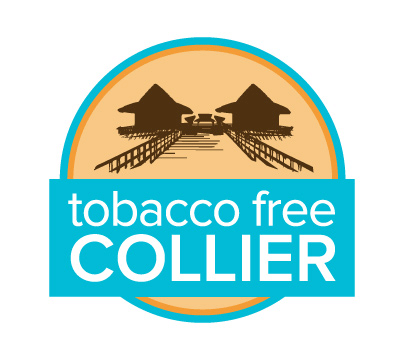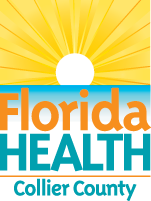It's a New Day in Public Health.
The Florida Department of Health works to protect, promote, and improve the health of all people in Florida through integrated state, county, and community efforts.
Teaming Up for Children’s Health
March 13, 2017

Local Community Organizations Working Together to Protect Young Lungs at Play
Collier County, Fla. – In pursuit of healthier playing environments for Collier County’s youngest residents, the Tobacco Free Collier Partnership and the Blue Zones Project have been working closely with Collier County Parks and Recreation staff on a project that will reduce secondhand tobacco smoke and vapor exposure for local youth.
While many still believe that secondhand smoke is harmless, research proves breathing even small amounts can be detrimental, especially for children.[i] Among the more than 7,000 chemicals that have been identified in secondhand smoke, at least 250 are toxic and about 70 can cause cancer.[ii] Compared to adults, children breathe more rapidly, absorb more pollutants, have less developed immune systems, and are more vulnerable to cellular mutations; making them more susceptible to the effects of secondhand smoke exposure.[iii] Breathing environmental tobacco smoke increases the likelihood that children will have lung problems, ear infections, and severe asthma.[iv]
One of the key objectives of the Tobacco Free Collier Partnership is to reduce the risk of secondhand smoke exposure, particularly for youth. While preemption language in the Florida Clean Indoor Air Act (FCIAA) prevents local governments in Florida from passing smoke-free policies protecting residents from the risks of exposure, the partnership and Collier County Parks and Recreation have come together to work on a solution. Collier County will place suggestive smoke-free signs near playgrounds and ball fields at Parks and Recreation facilities.
“It has been great working with the county to get this done.” said Robert Ostbye, Tobacco Prevention Specialist at the Florida Department of Health in Collier County. "Smoke-free areas not only protect people from secondhand smoke, but they also de-normalize tobacco use. When fewer people are seen smoking, more people are encouraged to quit and fewer youth ever start.”
These signs will serve as a friendly reminder to refrain from smoking and vaping where children play, therefore reducing the amount of secondhand smoke exposure.
About the Florida Department of Health
The department, nationally accredited by the Public Health Accreditation Board, works to protect, promote and improve the health of all people in Florida through integrated state, county and community efforts.
Follow us on Twitter at @HealthyFla and on Facebook. For more information about the Florida Department of Health please visit www.FloridaHealth.gov.
About Tobacco Free Florida
The department’s Tobacco Free Florida campaign is a statewide cessation and prevention campaign funded by Florida’s tobacco settlement fund. Tobacco users interested in quitting are encouraged to use one of the state’s three ways to quit. Since 2007, more than 137,000 Floridians have successfully quit, using one of these free services. To learn more about Tobacco Free Florida and the state’s free quit resources, visit www.tobaccofreeflorida.com or follow the campaign on Facebook at www.facebook.com/TobaccoFreeFlorida or on Twitter at www.twitter.com/tobaccofreefla.
[i] Department of Health and Human Services. The Health Consequences of Involuntary Exposure to Tobacco Smoke: A Report of the Surgeon General. Atlanta: U.S. Department of Health and Human Services, Centers for Disease Control and Prevention, National Center for Chronic Disease Prevention and Health Promotion, Office on Smoking and Health, 2006 [accessed 21 Feb. 2017].
[ii] Department of Health and Human Services. How Tobacco Smoke Causes Disease: The Biology and Behavioral Basis for Smoking-Attributable Disease: A Report of the Surgeon General. Atlanta: U.S. Department of Health and Human Services, Centers for Disease Control and Prevention, National Center for Chronic Disease Prevention and Health Promotion, Office on Smoking and Health, 2010 [accessed 21 Feb. 2017].
[iii] Bearer, Cynthia F. "Environmental Health Hazards: How Children Are Different from Adults." The Future of Children 5.2 (1995): 11-26 [accessed 21 Feb. 2017].
[iv] Department of Health and Human Services. The Health Consequences of Involuntary Exposure to Tobacco Smoke: A Report of the Surgeon General. Atlanta: U.S. Department of Health and Human Services, Centers for Disease Control and Prevention, National Center for Chronic Disease Prevention and Health Promotion, Office on Smoking and Health, 2006 [accessed 21 Feb. 2017].





Connect with DOH